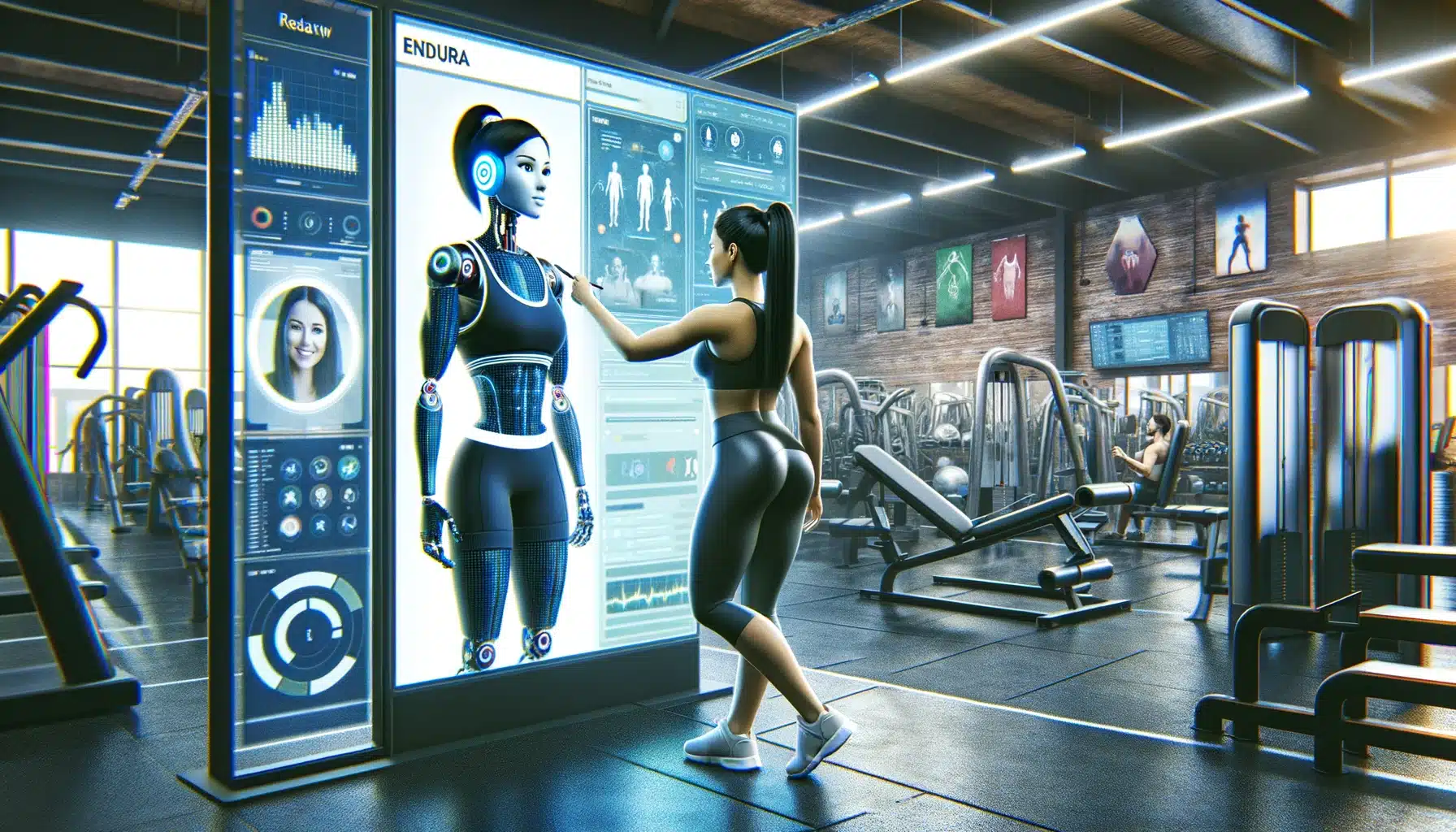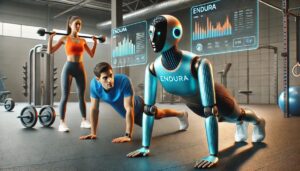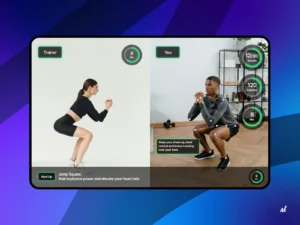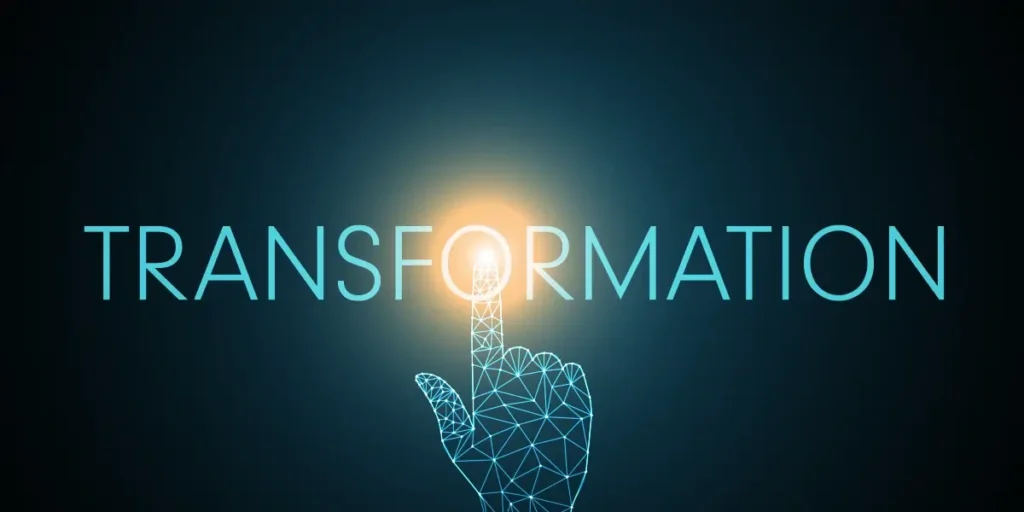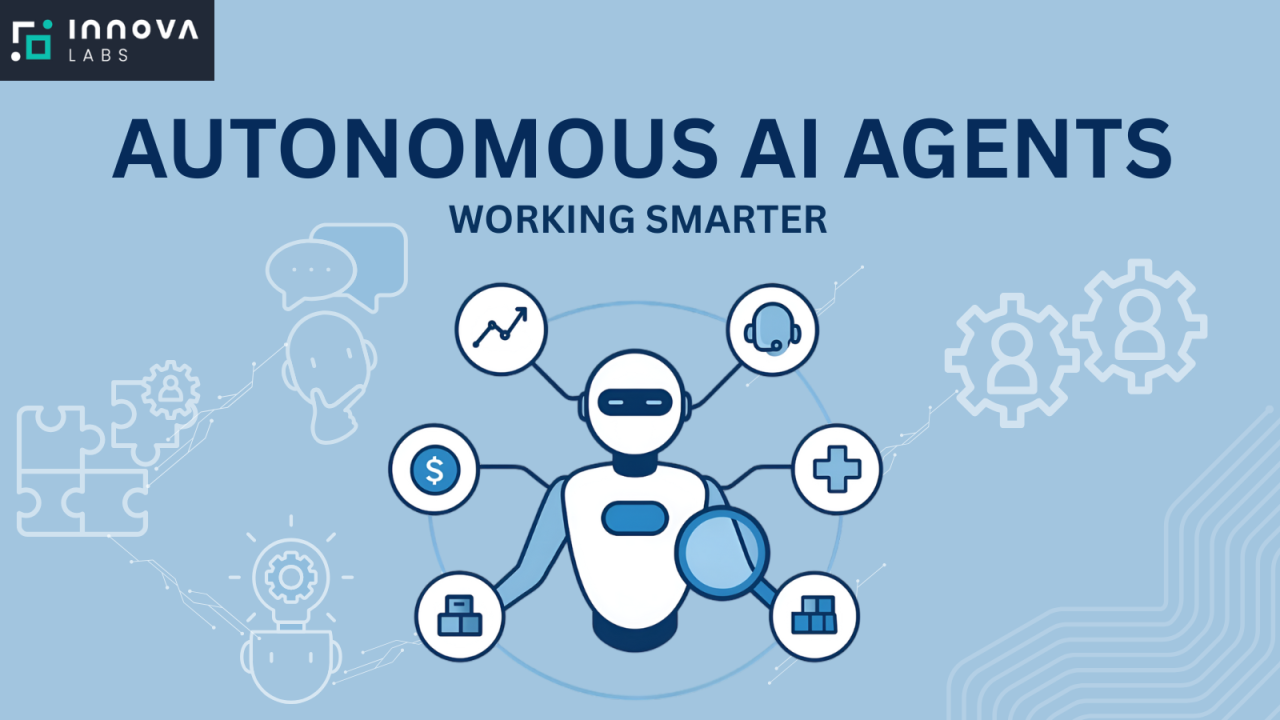AI-Powered Fitness Coaches: Can They Replace Real Trainers?
Introduction: The Rise of AI in the Fitness Industry
The fitness world is going through a tech revolution. Over the last few years, AI-powered fitness coaches have emerged as an alternative to traditional personal trainers. Using artificial intelligence, these virtual trainers analyze user data, create personalized workout plans, monitor progress, and even adjust routines in real time.
With wearable devices, smart fitness apps, and motion-tracking technology, AI trainers are now more advanced than ever. But here’s the big question: Can AI-powered fitness coaches actually replace real human trainers, or are they just a helpful supplement?
What Is an AI-Powered Fitness Coach?
An AI-powered fitness coach is a digital trainer that uses artificial intelligence algorithms to design and guide workouts. These systems collect data from:
-
Fitness trackers and smartwatches
-
Mobile apps and sensors
-
User inputs like age, weight, and goals
-
Performance tracking tools
Then, the AI coach creates tailored plans based on your needs—whether you want to lose weight, build muscle, or improve endurance.
Key Features of AI Fitness Coaches:
-
Personalized Workouts – AI adjusts exercises based on your body type, current fitness level, and progress.
-
Real-Time Feedback – Motion tracking can detect improper form and suggest corrections.
-
Nutrition Advice – Some AI coaches recommend meal plans aligned with your goals.
-
Data-Driven Progress Tracking – Charts, analytics, and stats to monitor improvement.
-
24/7 Availability – Train anytime without scheduling issues.
Popular examples include Freeletics, Fitbod, Tonal, Aaptiv, and Tempo AI.
Advantages of AI Fitness Coaches
1. Accessibility & Convenience
No need to book sessions or travel to the gym. AI trainers are available on your phone or smart device 24/7.
2. Cost-Effective
While personal trainers can charge $30–$100+ per session, AI apps often cost less than $10–$30 per month.
3. Personalized at Scale
AI can create highly customized plans for millions of users at once—something no human trainer can do.
4. Data-Driven Adjustments
AI analyzes heart rate, calories burned, and performance in real time, adapting workouts instantly.
5. No Judgment Environment
For beginners who feel self-conscious, AI offers a judgment-free space to train confidently.
Limitations of AI Fitness Coaches
While the technology is impressive, AI trainers have limitations that make them less effective in some situations.
1. Lack of Emotional Support
A real trainer can motivate you, read your mood, and push you when needed—AI still struggles with genuine empathy.
2. No Hands-On Adjustments
Physical guidance for posture correction or spotting during heavy lifts is something AI cannot do.
3. Dependence on Technology
If your device malfunctions or sensors misread movements, it can affect your training accuracy.
4. One-Size-Fits-Most Risk
Although AI personalizes workouts, it still relies on general algorithms—unlike a trainer who can adapt instantly to your unique circumstances.
5. Limited Injury Awareness
AI can suggest rest if you log pain but can’t always recognize subtle signs of overtraining or injury risk.
Can AI Replace Human Trainers?
The short answer: Not completely—at least not yet.
AI-powered fitness coaches are ideal for:
-
Self-motivated individuals
-
People with basic workout experience
-
Those who need affordable, accessible guidance
-
Data lovers who enjoy tracking performance
However, human trainers excel in:
-
Emotional and motivational coaching
-
Injury prevention and rehabilitation guidance
-
Creative workout variations
-
Building personal trust and accountability
AI and human trainers might not be competitors—they could be partners. Imagine a hybrid approach: an AI app tracks your data and progress, while a human trainer reviews it and adjusts your plan.
The Future of AI in Fitness Coaching
The fitness tech industry is evolving fast. In the next 5–10 years, we can expect:
-
Advanced Motion Tracking: Cameras and sensors will analyze form as well as a live trainer.
-
Wearable AI Devices: Smart gym clothes that track posture and movement in real time.
-
Virtual Reality (VR) Workouts: AI coaches guiding you through immersive fitness experiences.
-
Emotion-Sensing AI: Tools that detect mood and energy levels for better motivation.
With these advancements, AI coaches will close the gap between digital and human training—though empathy and human touch will still be hard to replicate.
Tips for Using AI Fitness Coaches Effectively
-
Be Honest With Your Data – Accurate inputs give better workout recommendations.
-
Use Wearables – Pair your AI app with smart devices for precise tracking.
-
Don’t Ignore Pain Signals – Consult a professional if something feels wrong.
-
Mix It With Human Guidance – Use AI for daily workouts and check in with a trainer occasionally.
-
Stay Consistent – AI coaches are only effective if you stick to the program.
Conclusion: The Best of Both Worlds
AI-powered fitness coaches are revolutionizing the way people approach exercise. They’re affordable, accessible, and data-driven—perfect for the modern, busy lifestyle. But while they offer personalized workouts and convenience, they can’t fully replace the motivation, emotional connection, and hands-on guidance a real trainer provides.
The smartest move? Combine AI tools with human expertise for a balanced, effective, and sustainable fitness journey. In the end, technology can be a powerful ally, but the human touch still matters in achieving long-term fitness success.
FAQs
1. Are AI fitness coaches accurate?
Yes, many AI fitness apps use advanced motion tracking and data analytics for accurate guidance, but their effectiveness depends on the quality of the device and your input data.
2. Can AI trainers help with weight loss?
Absolutely. AI fitness coaches can design personalized workout and diet plans to help you achieve weight loss goals.
3. Are AI fitness apps safe for beginners?
Yes, but beginners should start with low-intensity plans and consult a professional if unsure about form or injuries.
4. Which is better for muscle gain—AI or human trainers?
Human trainers have the edge for advanced bodybuilding because they can provide real-time form correction and motivation, but AI can be very effective for consistent, structured training.
5. What’s the cost of an AI fitness coach?
Most AI fitness apps range from free to $30 per month, significantly cheaper than traditional personal trainers.

